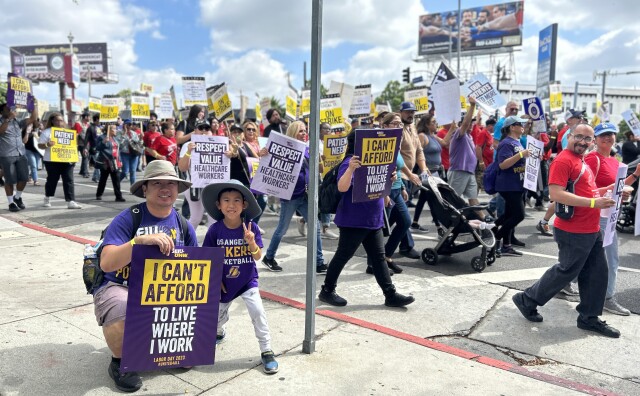A Lack Of Contact Tracing Has Left Us Struggling To Regulate Restaurants

Public health researchers believe restaurants are among the most common places to get infected with COVID-19 but contact tracing has been so lackluster that few health departments have been able to link disease clusters to in-person dining.
Still, there is some evidence that eating and drinking establishments can be potent sites for spreading the virus.
A 10-state study from the Centers for Disease Control and Prevention found that dining at a restaurant was the only activity that differed significantly between those who tested positive for COVID-19 and those who tested negative.
A University of Vermont study concluded that restaurant restrictions appear effective at slowing the spread of the virus.
And a recent Stanford University-led study that used mobile phone data from different cities to create a simulation of viral spread suggests that only 10% of public places account for more than 80% of coronavirus infections that occurr in public places. The study concludes that restaurants operating at full capacity spread four times as many additional COVID-19 infections as the next-worst location, indoor gyms.
Still, none of these studies can definitively prove that restaurant dining causes infections, researchers say. That would require robust contact tracing.

"It takes in-depth, resource-heavy disease investigations to determine where people were exposed to the coronavirus, and those contact-tracing efforts have never gotten off the ground in most of the country," Anna Almendrala writes.
As winter looms and people increasingly gather indoors, Southern California officials have imposed tighter restrictions on restaurants — and they have faced plenty of pushback from an industry already devastated by the pandemic.
Last week, L.A. County ordered restaurants to temporarily halt outdoor dining (although the city of Pasadena has allowed it to continue -- for now). Members of both the L.A. County Board of Supervisors and the L.A. City Council put forward motions urging the county's Department of Public Health to rescind the outdoor dining ban.
The county motion failed, but the city council motion passed with overwhelming support.
"The failure to achieve comprehensive contact tracing means that decisions about whether to close restaurants, or how many customers to allow at a time, have relied heavily on the local political climate," Almendrala explains. "Because the data from contact tracing is sketchy, it's not always easy to correlate a community's restaurant restrictions with case rates."
READ MORE:
Our news is free on LAist. To make sure you get our coverage: Sign up for our daily coronavirus newsletter. To support our nonprofit public service journalism: Donate now.
-
After San Gabriel's city council rejected the proposal as "too narrow", one city councilmember argued the entire DEI commission, created in the aftermath of George Floyd's murder, had "run its course."
-
A medical industry challenge to a $25 minimum wage ordinance in one Southern California city suggests health workers statewide could face layoffs and reductions in hours and benefits under a state law set to begin phasing in in June. Some experts are skeptical, however, that it will have such effects.
-
Sandhill cranes are returning to the Lake Tahoe basin after a century long hiatus in what many say is a conservation success story.
-
The Dodgers fired Mizuhara in March after Ohtani's lawyers accused him of stealing millions of dollars from the baseball player to place bets with an Orange County-based bookie.
-
Jackie’s partner, Shadow, refuses to abandon their unviable eggs, despite her attempts to nudge him along.
-
Big Sur's Highway 1 was built to maximize the breathtaking views of the cliffs and ocean at the cost of the road's longterm stability.






